China's Xi Tells Saudi Crown Prince He Supports Saudi-Iran Talks
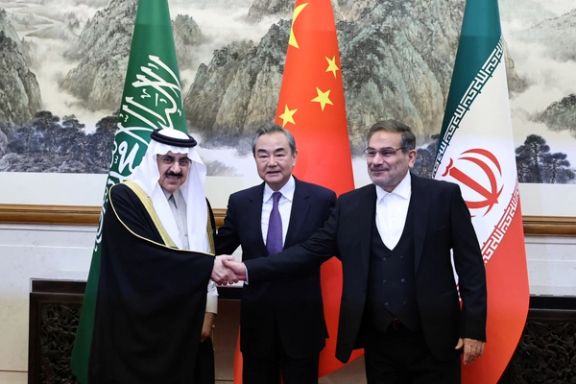
China’s President and Saudi Arabia’s Crown Prince have spoken by phone, discussing a wide range of topics including supporting follow-up talks between Riyadh and Tehran.

China’s President and Saudi Arabia’s Crown Prince have spoken by phone, discussing a wide range of topics including supporting follow-up talks between Riyadh and Tehran.
President Xi Jinping said in his discussion with Crown Prince and Prime Minister Mohammed bin Salman Al Saud that he hopes the two sides will continuously improve their relations on the basis of the results of the dialogue, state media CCTV said on Tuesday.
Earlier this month, Xi helped broker a surprise deal between Iran and Saudi Arabia, Middle East rivals, to restore diplomatic ties after seven years of rivalry and tensions.
Iranian and Saudi foreign ministers held a phone conversation Sunday and agreed to meet to work out the details of re-opening diplomatic missions.
The deal was seen as a major potential change in the Persian Gulf region and the Middle East not only for reducing Saudi-Iranian tensions but placing China as a regional diplomatic force. Many analysts saw the development as a loss for the United States, which for decades has been Riyadh’s close ally.
Continuing to promote and develop China-Saudi Arabia relations, Xi said the two countries will firmly support each other on issues involving their respective core interests.
China has become one of the major Saudi crude oil customers and investors and also enjoys considerable influence over Iran’s Islamic government.
China and Saudi Arabia will make more contributions to promote peace, stability and development in the Middle East, Xi said, according to state media.

Twitter’s recent suspension of hundreds of accounts has angered Iran's pro-monarchy Twitterati who believe they are being targeted by the Islamic Republic.
“Thousands of pro-democracy activists' Twitter accounts have been suspended en masse, indicating #cyberterrorism by an adversarial state and its proxies. We are investigating it. Would you care to join us in this effort, @elonmusk?” activist Shima Kalbasi tweeted Monday.
Kalbasi said it appears that the Twitter rules are being manipulated to benefit the Iranian regime and other actors. “I am reporting this issue to the FBI for further investigation,” she said in another tweet.
Sometimes Twitter asks the author to remove a tweet and serve a period of time in read-only mode before they can tweet again. In more serious cases, Twitter suspends the accounts of those “whose sole purpose is to violate” the platform’s policies. Such decisions can be appealed. Twitter also suspends accounts when other users mark its tweets as abusive.
@Sashtyani, one of the popular pro-monarchy accounts with over 62k followers, however, dismissed such “conspiracy theories” and said Twitter’s algorithms are responsible for the mass suspension of these like-minded accounts. It is possible that the suspended accounts followed too many of the fake accounts created by the Islamic Republic’s cyber-army, @Sashtyani argued.
This post claims Twitter has shown dual standards when it comes to the use of the same hashtag with the phrase “Death to” by two different users.
The Iranian regime has what it calls a “cyber army” with thousands of bots and agents who try to spread disinformation or report the accounts of dissidents. Both Twitter and Facebook have closed thousands of such accounts in the past once they concluded that they were government-driven actors.
Apparently, many of the tweets found abusive by Twitter contained the Persian word marg (death) in phrases such as “Death to …” against the Islamic Republic or various political groups.
“Twitter is now suspending accounts that say ‘Down with the 1979 riot’. Not sure why Elon Musk's Twitter is suspending the accounts that wish the fall (death) of that ‘riot’ and the radical Islamist regime it created. What is wrong with that wish?”, Saeed Ghasseminejad, a senior advisor at the Washington-based Foundation for Defense of Democracies (FDD) tweeted Sunday. He included an image of a message from Twitter to an account required to remove a tweet that read “Death to the 1979 riot”.
Another tweet addressed to Musk with the hashtag #FreedomOfSpeech asked if he has any thoughts on suspension of accounts that “express a desire for the downfall of the radical Islamist regime and the '79 riot in Iran?”
Some Twitterati say tweets appearing to be abusive or threatening are probably being removed by artificial intelligence rather than persons who examine the content.
Tweeter sends a message to account holders when one or more of their tweets are marked as containing violent speech or threats.
Twitter prohibits “unwanted sexual conduct and graphic objectification that sexually objectifies an individual without their consent” as well as the “use of insults or profanity to target others”, “behavior that encourages others to harass or target specific individuals or groups with abusive behavior.”
Twitter also says tweets by an account that have been found in violation of Twitter safety policies will be downranked in replies, made ineligible for amplification in top search results and/or on timelines for users who don’t follow the Tweet author.
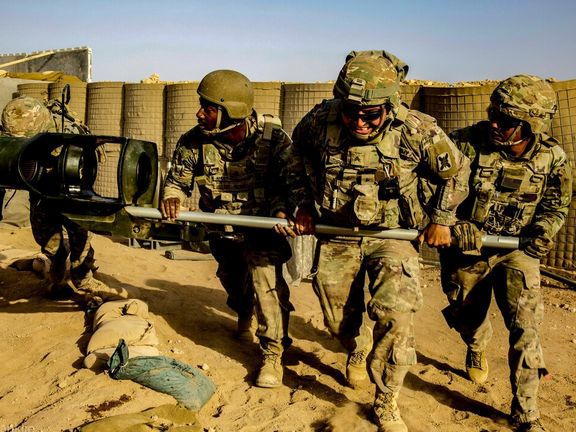
The United States will not back away from its deployment to Syria, despite attacks on its forces there last week by Iran-backed militia, the White House said Monday.
A one-way attack drone struck a US base in Syria on March 23, killing an American contractor, injuring another and wounding five US troops.
That triggered US retaliatory air strikes and exchanges of fire that a Syrian war monitoring group said killed 19 Syrian and pro-Iranian forces.
White House National Security Council spokesperson John Kirby said he was not aware of any additional attacks over the past 36 hours but cautioned, "We're going to stay vigilant."
Kirby also referred to President Joe Biden's remarks on Friday, when he warned Iran that the United States would act forcefully to protect Americans.
"There's been no change in the US footprint in Syria as a result of what happened the last few days," Kirby said.
"We're not going to be deterred … by these attacks from these militant groups."
Syria's foreign ministry on Sunday condemned US strikes, saying Washington had lied about what was targeted and pledging to "end the American occupation" of its territory.
Iran's foreign ministry also condemned the strikes, accusing US forces of targeting "civilian sites."
US forces first deployed into Syria during the Obama administration's campaign against Islamic State, partnering with a Kurdish-led group called the Syrian Democratic Forces. There are about 900 US troops in Syria.
Prior to the latest spate of attacks, US troops had been attacked by Iranian-backed groups about 78 times since the beginning of 2021, according to the US military.
Reporting by Reuters
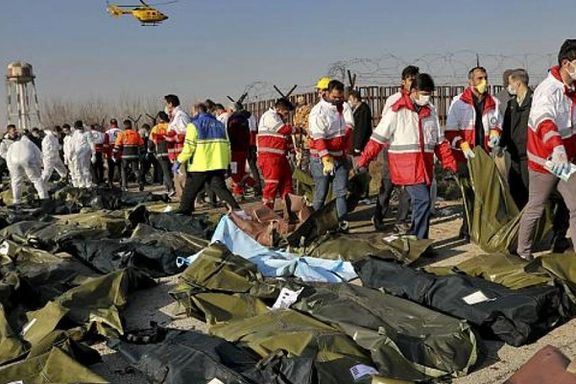
Iran’s former presidential chief of staff says after the downing of a Ukrainian airliner in 2020, the President was not told it was shot down by IRGC missiles.
Mahmoud Vaezi told Mashreq news in Tehran on Monday that “the night when we were informed the Americans had killed Qassem Soleimani in Iraq it was a very tough time. Then the downing of the Ukrainian plane was so hard to bear.”
Flight PS 752 was hit with two surface-to-air missiles as it was taking off from Tehran on January 8, 2020, in the tense aftermath of Iran's missile attack on United States military bases in Iraq. The missile attack on US bases was in retaliation for the US killing of Iranian general Qassem Soleimani in Baghdad days earlier.
Vaezi went on to say that President Hassan Rouhani, Foreign Minister Mohammad Javad Zarif and other senior presidential aides were not initially told that the plane was shot down.
All 176 people onboard died in the incident, many dual-national Canadians, the Ukrainian pilots and crew, British citizens and others.
Iran first said that the crash was an accident but after video emerged showing projectiles hitting the plane and remarks by the United States and Canada that they had evidence of anti-aircraft missiles having been fired at the aircraft, the Revolutionary Guard (IRGC) admitted three days later that it was responsible for shooting down the airliner, resulting from “human error.”
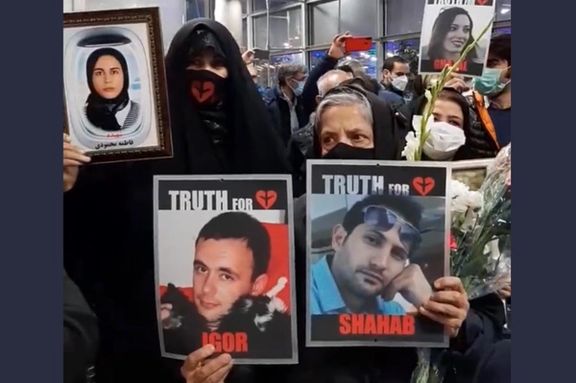
“At that time, President Rouhani insisted on making a statement as soon as possible to tell the people everything,” he added, but before that “Rouhani, Foreign Minister Zarif and Roads Minister Mohammad Eslami did not know what had really happened.”
He went on to say that after news outlets abroad reported it was not an accident and the plane was shot down, the Rouhani administration followed up but they [the IRGC] denied, and “finally we found out the truth, but we were having a hard time.”
One day after the incident, President Rouhani’s spokesman denied that the airliner was shot down.
"All these reports are a psychological warfare against Iran...all those countries whose citizens were onboard the plane can send representatives and we urge Boeing to send its representative to join the process of investigating the black box," Ali Rabiei said in a statement.
However, Iran never allowed investigators to visit the country or interview any officials. After months of delay, Tehran passed on the flight data recorder to France for analysis, but no new information emerged. The issue was not how the plane had crashed but to find out who had issued the order to fire at the airplane.
In the three years since the tragedy, the families of the victims have explored multiple avenues to get answers from Iran, including taking the unusual step last year of filing a case in the International Criminal Court.
A sham trail of a few low-ranking military men was held in Tehran but victim families who attended a few court sessions dismissed the exercise as futile in uncovering the truth about which high-ranking officials were responsible.
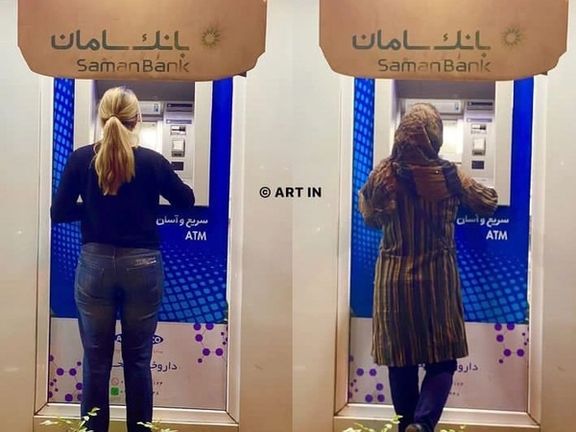
An ultra-hardliner has said that women could be fined as much as $60,000 for flouting hijab when a new law to enforce the Islamic dress code is passed by parliament.
Speaking to the press in his constituency in Yazd Province, Hojjat ol-Eslam Hossein Jalali said Sunday that punishments for flouting the hijab, according to the planned legislation, will include cash fines from 5m to 30b rials (around $100 to $60,000) and that other penalties may include revocation of drivers’ licenses and passports, or a ban on the use of the internet for celebrities and social media influencers and bloggers.
These penalties will apply to passengers who do not abide by the hijab rules while riding in vehicles, at restaurants, government organizations, schools and universities, airports and public transport terminals, in the cyberspace and to celebrities, and on the streets and other public arenas, Jalali added.
Hardliners have been looking for ways to strengthen the enforcement of hijab after their ‘morality police’ tactic of arresting women for “improper hijab” backfired with the death of Mahsa Amini last September, triggering nationwide popular protests.
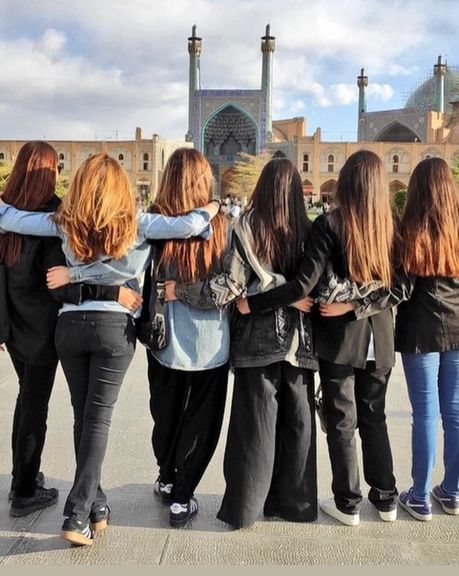
Detainees were usually released after paying rather smaller cash fines but could also face prison and lashes if they had a previous record. Activism against the compulsory hijab could also bear serious consequences including prosecution and imprisonment.
The morality police has largely disappeared from the streets since Amini’s death in September and the resulting protests as authorities feared enraging people.
Four decades after the Islamic Republic forced women to wear headscarves, long tunics and trousers, or the long black veil called chador, women are increasingly appearing in public, even in many smaller and more traditional areas of the country, in regular clothing such as colorful dresses and with no headscarf covering their hair.
Young girl skating and dancing ‘hijabless’ at a park in western Tehran recently.
Many women say on social media that there is no way they will go back to dressing according to the government mandated dress code.
The plan, Jalali said, was finalized after “300 meetings with the Supreme Council of Cultural Revolution and the National Security Council”. In December, amid nationwide protests, Jalali had said that thirty-seven different government organizations that were responsible for implementation of the existing hijab law had all received the relevant instructions to enforce it.
The government should submit the plan to the parliament in the form of a bill within the next couple of weeks, Jalali said of the envisaged plan which has been “brought to the attention of” the Supreme Leader Ali Khamenei and the Judiciary, implying their agreement with the new plan had been obtained.
Vida Movahed protesting against compulsory hijab in December 2017 at a busy streets in Tehran.
The new law, if passed, would exclude any “physical encounter” with women, Jalali said. He was apparently referring to plans to use CCTV cameras and facial recognition technology to identify women who flout the hijab, and use cash fines and social restrictions to punish them, instead of using the infamous morality police patrols on the street to issue warnings or make arrests.
The plans to eliminate physical confrontation were first revealed by the secretary of the Headquarters for Promoting Virtue and Preventing Vice, Mohammad-Saleh Hashemi-Golpayegani.
He said at the time that CCTV footage from public places such as streets and public transport and facial recognition software would be used to enforce the hijab.
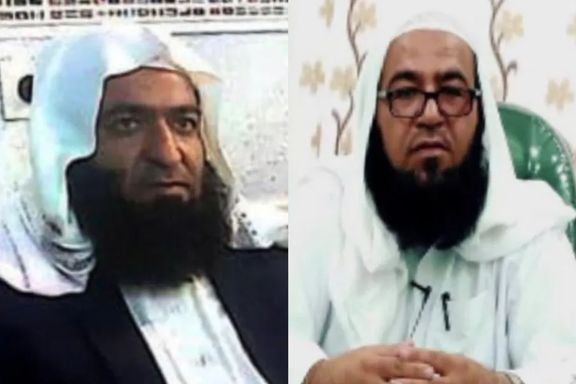
Fears are growing for two teachers and activists in Iran’s Sistan and Baluchistan province who have not been seen for 40 days.
Brothers Reza and Abdulrauf Rakhshani, prominent teachers at a Sunni religious school in Zahedan, went missing after what is believed to have been a regime backed forced disappearance.
According to reports from local publication Halvash, the two brothers were arrested by the security forces in Zahedan on February 15 and despite the follow-up of their family, the judicial and security authorities have not yet commented on their condition.
The report claims that the arrest of the two brothers is aimed at "putting more pressure on Mowlavi Abdolhamid, the Sunni Imam of Makki Mosque of Zahedan”.
Civil activists in Sistan and Baluchistan, home to a Baluch majority, have previously reported that during the protests of the last six months a large number of citizens, including children under the age of 18, have been arrested with no charge against them.
There is no accurate information about the situation of many of them due to the disruption of the internet in many areas of the southeastern province.
At least 69 Afghan students who were studying at a religious school in Zahedan, were arrested by the security forces and transferred to a camp on February 13 after having been forced to confess to participating in Zahedan’s weekly protests.
The Sunni city of Zahedan in the southeastern Sistan-Baluchestan province has been witnessing protests against repressions and discriminations in the province following mass Friday prayers during the past 25 weeks.
The Sunni Baluch population have taken to the streets in Zahedan every Friday after prayers since September 30 when government forces cracked down on protesters and killed tens of protesters, known as Bloody Friday. Protests began after the death of Mahsa Amini in ‘hijab police’ custody in mid-September.